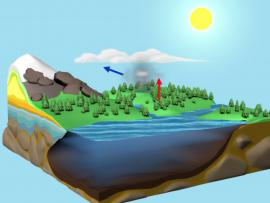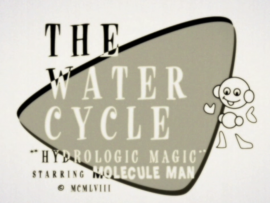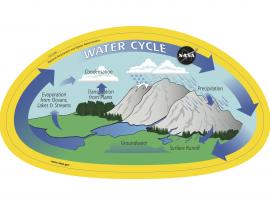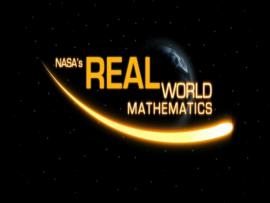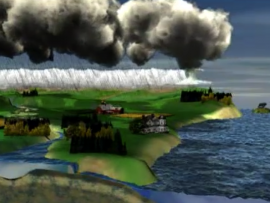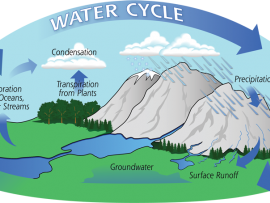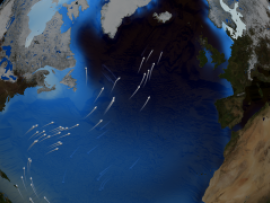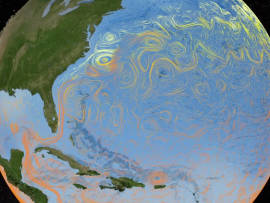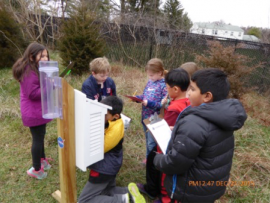Search
Primary tabs
Search
Your search for "Evaporation" gave back 27 results.
Primary Topic:
Type:
Audience:
Standards:
Keywords:
Summary:
This animation shows one molecule of water completing the hydrologic cycle.
Primary Topic:
Subtopics:
Type:
Keywords:
Summary:
This video (4:56) uses a combination of cartoon characters, a scientist, and a series of different Earth-observing satellites with data animations to teach the various parts of the water cycle.
Primary Topic:
Subtopics:
Type:
Standards:
Keywords:
Summary:
Educational handout in the shape of a raindrop. The front shows a diagram of the water cycle, and the back has information about GPM and facts about water.
Primary Topic:
Subtopics:
Type:
Keywords:
Summary:
Learn about precipitation and how clouds are formed. Find out why scientists study clouds and how you can help NASA collect cloud observation data as part of the Students' Cloud Observation OnLine, or S'COOL, Project.
Primary Topic:
Subtopics:
Type:
Standards:
Keywords:
Summary:
This animation shows the entire process of the water cycle throughout the course of a day.
Primary Topic:
Subtopics:
Type:
Standards:
Keywords:
Summary:
This Speaker ToolKit has been designed to allow presenters (scientists, engineers, etc.) to easily present to an elementary and/or middle school audience about the water cycle.
Primary Topic:
Subtopics:
Type:
Keywords:
Summary:
The S'COOL Project involves students (ages 5 - 20+) in real science, making and reporting ground truth observations of clouds to assist in the validation of NASA's CERES satellite instruments. Includes lesson plans and other related materials.
Primary Topic:
Subtopics:
Type:
Standards:
Keywords:
Summary:
The oceans are mostly composed of warm salty water near the surface over cold, less salty water in the ocean depths. These two regions don't mix except in certain special areas, which creates a large slow current called the thermohaline circulation.
Primary Topic:
Subtopics:
Type:
Keywords:
Summary:
Ocean circulation plays a key role in distributing solar energy and maintaining climate, by moving heat from Earth's equator to the poles. Aquarius salinity data, combined with data from other sensors, will give us a clearer picture of how the ocean works
Primary Topic:
Type:
Summary:
Here you will find a variety of resources to assist you in making a visit to a local school, day care center, or after school group. Make a difference in the lives of young people by sharing what you do and the excitement of learning about GPM and Earth.


